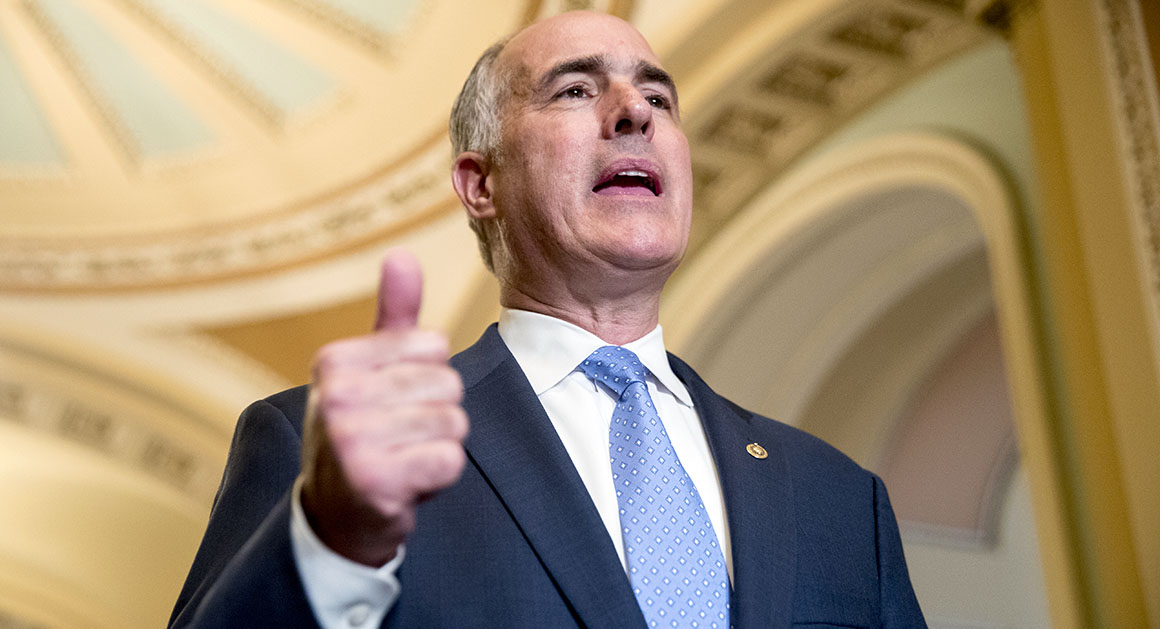The 2024 election season has seen its fair share of dramatic moments, but the recent showdown between Senator Mike Lee (R-Utah) and Senator Bob Casey (D-Pa.) is shaping up to be one of the most contentious. Senator Lee has publicly warned that the Senate may refuse to seat Casey if he continues his refusal to concede the Pennsylvania Senate race, raising questions about the future of election disputes in the U.S.
A Controversial Stance on Election Results
The conflict centers on Casey’s allegations of irregularities in Pennsylvania’s vote-counting process. Casey has claimed that certain ballots were counted illegally, citing concerns over mail-in ballot procedures and the handling of absentee votes. While the Pennsylvania Secretary of State’s office has maintained that the election was conducted fairly and in accordance with state laws, Casey has doubled down on his refusal to concede.
In response, Senator Lee issued a stark warning, emphasizing the Senate’s authority to review the seating of its members. “We cannot in good conscience ignore credible challenges to election integrity,” Lee stated in a press release. “If Senator Casey continues to contest these results without substantial evidence, the Senate has a constitutional obligation to ensure that its members are legitimately elected.”
Election Integrity in the Spotlight
Lee’s warning has triggered a broader national debate about election integrity, the role of elected officials in accepting certified results, and the implications of challenging them without clear proof. Critics of Casey argue that his actions undermine public trust in the democratic process and set a dangerous precedent for future elections. Supporters, however, contend that every candidate has the right to exhaust all legal avenues to ensure a fair election.
This isn’t the first time questions about election integrity have dominated political discourse. The 2020 presidential election saw similar controversies, with candidates and parties divided over recounts and legal challenges. Experts worry that repeated disputes over election results could erode public confidence in the voting process.
What Happens Next?
The U.S. Constitution grants the Senate the authority to judge the elections, returns, and qualifications of its own members. This power gives Lee’s threat considerable weight, as it could lead to prolonged legal battles or even a Senate vote to deny Casey his seat. However, legal experts caution that the bar for such action is high, requiring clear evidence of wrongdoing or procedural violations.
For now, the dispute places the spotlight on Pennsylvania, a state often seen as a bellwether in national elections. Both Republican and Democratic leaders are watching closely, aware of the potential long-term implications for future campaigns and the already polarized political climate.
Broader Implications
The Casey-Lee standoff underscores a growing trend in American politics where election outcomes are increasingly contested. Observers warn that these disputes, regardless of their merit, contribute to political division and a lack of faith in institutions. Moving forward, the resolution of this issue could set a significant precedent for how election challenges are addressed, not only in the Senate but across the nation.
As the situation develops, the nation waits to see whether Casey will concede or persist in his claims. Meanwhile, Lee’s warning remains a stark reminder of the power dynamics at play in the Senate and the fragile state of bipartisan cooperation.
Sources
- Fox News: Lee threatens not to seat Casey in Senate if he continues refusal to concede
- U.S. Constitution: Article I, Section 5
- Pennsylvania Secretary of State: Election Results & Procedures

